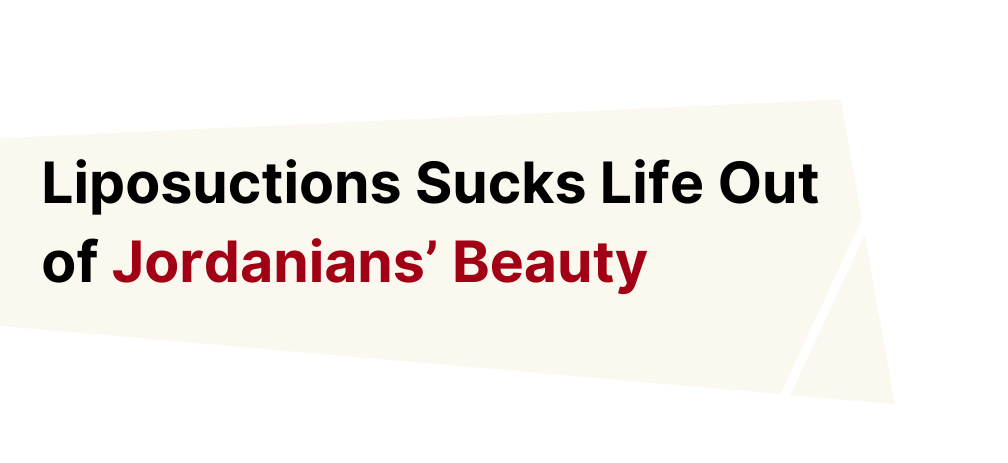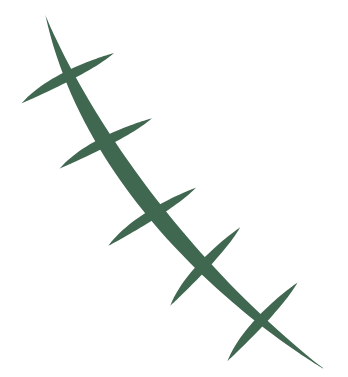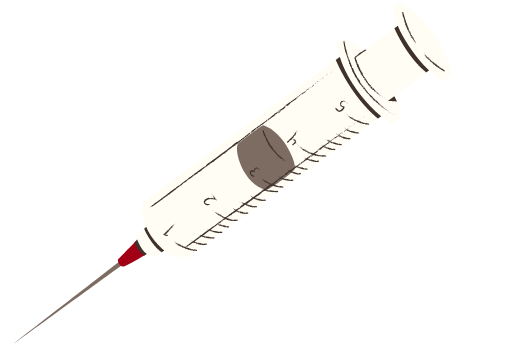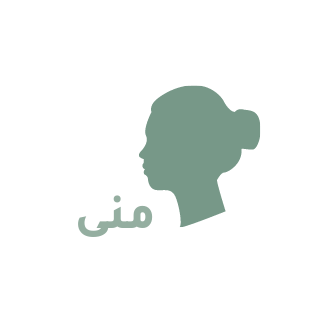Liposuctions Sucks Life Out of Jordanians’ Beauty







Raddad Al-Qallab This investigation was carried out with the support of ARIJ.
In 2017, thirty-two-year-old Marian Al-Sahouri died during plastic surgery. Her story shows that the surgeon had put more effort convincing her to undergo the procedure instead of making efforts to adhere to the medical protocols to ensure that she would be safe under anaesthesia.
Marian “hated” her body due to the scars resulting from poor sutures, and she has been convinced to go through plastic surgery when she met a doctor on social media who lured her in, telling her that “the process was easy and after she would have a beautiful body.” Marian’s brother Tariq Al-Sahouri, said that the doctor had told his sister that several operations including liposuction, scar revisions, buttocks lift, and a tummy tuck could be performed all in one operation for 10000 Jordanian Dinars, that is $14000 US Dollars.
The operation that had taken her life was carried out at a maternity hospital without a fully equipped operating room for liposuctions. Basic pre-operation medical tests such as examining tissues and blood cells were not done. Her brother stresses that the doctor did not calculate the amount of fat to be taken out, nor did he study her medical history failing to see that she had screws in one leg as a result of an old fracture injury.
Marian’s case has been pending in the courts since 2017. The main defendant, the doctor, was busy carrying out procedures on other patients simultaneously when operating on Marian. He had only pointed the suction points on her body, but left it to another doctor specialized in general surgery – and not licenced to work in Jordan – to perform the rest.
The non-specialist second doctor injected a fat-dissolving substance into the parts of her body where the liposuction was supposed to take place, and the operation continued even though the victim’s blood pressure dropped to 50/80, which is considered life-threatening. Marian later needed additional blood units but this was not made available as the doctor did not know her blood type.

9:00
o'clock

Marian’s haemoglobin level is 13

Blood pressure: 90/60
12:00
o'clock
13:00
o'clock

Blood pressure: 50/80

Marian’s haemoglobin level is 8.5
16:00
o'clock
19:30
o'clock

Marian’s heart stopped beating



Marian is one of many Jordanians and Arabs who seek to improve their physical beauty at any cost and end up hurt or even losing their life when they fall for unscrupulous clinics and plastic surgeon advertisements promising liposuction and body contour enhancement operations at cheap prices.
While researching liposuction operations in Jordan, the investigator discovered dozens of chilling videos of fully conscious screaming female patients on medical beds in private clinics while a scalpels poked their bodies under the armpit, the abdomen, or buttocks, bleeding away without the vital medical attention and care needed.
Most of these dangerous operations are usually performed under local anaesthetic that might lapse while under the scalpels of the surgeon, as such operations are carried out without an anaesthesiologist supervision, which violates the requirements as set by the Medical Association for performing liposuction operations.
It is usually permissible to dissolve fat from one spot in the body and then to place it in another by no more than 50cc, and this cannot be considered a “liposuction” procedure, but is a procedure that should only be performed by a dermatologist surgeon, in hospital with a fully compliant operating theatre so the surgeon is able to deal with potential complications emanating from fatty clots that move towards the heart and lungs and may lead to the patient’s death.
Also full anaesthesia in the presence of an anaesthesiologist is required.

Liposuction operations gone out of control
A dentist known only by her initials (GB) has met the same fate as Marian’s when she agreed to be operated at a private clinic by a non specialised surgeon, without the pre-operation necessary medical exams or the presence of an anaesthesiologist.
Doctor Walid Haddadin, is a specialist in plastic, reconstructive and burn surgery says that the investigations of the Medical Association have revealed that the surgeon in question was already convicted of committing a medical error while doing two liposuction procedures previously, and he was only given a warning then. Three weeks after receiving the warning, the dentist named (GB) “died from severe pain.”
Doctor Mohammad Barbarawy, a member of the Medical Association committee, and former Minister of Health who was also a plastic and reconstructive surgery specialist Ghazi Al-Zibin, both agreed that genuine oversight over clinics, hospitals, cosmetic centres, laboratories or pharmacies is lacking.
According to Mohammad Al-Sakharnah, an employee in the Oversight and Inspection Directorate at the Ministry of Health explains that there are around 70 oversight and inspection staff members at the Ministry, tasked with monitoring the work of clinics, health centres, laboratories, pharmacies, hospitals, and more than 28911 doctors and 118 government, private, and educational hospitals.

According to the head of the complaints committee at the Medical Association, Mohammad Barbarawy, the association has received forty-three complaint cases from August 6, 2020 to December 31, 2020, and only nine of these were referred to the association’s disciplinary committee because they performed liposuction surgeries without the necessary credentials to perform plastic surgery. Five of the complaints were also referred to the ministry because doctors performed liposuction operations at clinics and medical centres that were not adequately equipped for the tasks. The investigation led to the temporary suspension of five doctors including the one who caused the death of the dentist.

Jordan’s Medical Association Law No. (13) of 1972 and its amendments in (Article 5/C) stipulate that a doctor’s name must be struck off the doctors’ register if a “disciplinary decision” is made against them. All other complaints are usually saved if a peaceful resolution between the patient and the doctor was reached.


Oversight cannot keep up with the market
The official in charge of the inspection and oversight directorate at the Ministry of Health, Ahmad Al-Sakharnah, confirmed that only 72 employees are authorized to carry out inspections. This small number cover all health directorates across Jordan, including seven employees who are based at the Ministry’s headquarter.
Al-Sakharnah confirms that his department receives between 400 to 600 complaints every month, from its staff spread across the governorates, also directly or via its hotline. Of the hundreds of complaint cases received, action was taken against twenty to twenty-five violating clinics leading to their closure in the second half of 2021, as well as the referral of their owners to the Public Prosecutor for performing unlicenced liposuction operations.
Former Minister of Health Ghazi Al-Zibin agrees also that the number of employees of the licensing and inspection directorate in the Ministry is not sufficient, as they have hardly the time to carry out real monitoring work. Al-Zibin believes that weak oversight opens the door for abuse since any employee in the oversight and inspection directorate could receive bribes to remain silent or simply turn the other way if they discover violation at clinics, hospitals, pharmacies or laboratories.
These officials and specialists have called for amending the laws through increasing the penalties and speeding up the legal process at courts, instead of some cases taking five years before reaching a decision. He gave the example of a doctor who holds a degree in general surgery and works as a teacher of paediatric surgery at an national university. The same doctor, Al-Zibin claims, has been doing plastic surgery in his private clinic and there are many complaints recorded against him, but no one holds him accountable. Barbarawy considers this to be a loophole in the legislation that is in force.
Barbarawy criticized the penalty articles in the Medical Association Law describing them as “outdated.” He called for a review of the law, the regulations and instructions, saying that the current penalties classified according to Article (55) of the Jordan Medical Association Law No. (13) of 1973, and its amendments, limit the penalties at between one hundred Dinars ($140) and not more than one thousand Jordanian dinars ($1400) for violating doctors.
Barbarawy warned dentists against entering the field of plastic surgery, stressing that the law does not allow them to do so, as only dentists specialized in jaw and nose surgery are allowed to perform “only facial cosmetic surgery.”
These officials are demanding that the directorate of professions and licensing at the ministry of health be well staffed and given the remit to operate as an independent directorate just like the Food and Drug Administration. This, in their opinion will help patients get a reference point that help them check their physicians area of expertise and standing in the profession prior to using their services. Patients must also steer clear of commercial advertisements that litter the Internet.

Lack of oversight leads to repeated violations.
According to a former member of the Medical Association and a member of the investigation committee, the Medical Association council had investigated the deaths of two Gulf Arab nationals during two liposuction operations that were performed at a doctor’s office.
This is not the first time that the doctor, or the accused, comes under investigation by disciplinary councils.
The doctor created his own pages on social media targeting patients form Jordan and abroad and has appointed doctors to respond to questions. This is in violation of the regulation on media and medical adverts that is in force as stated in paragraphs (A) and (B) of Article (4) of the medical constitution.
He opened a clinic and broke the law by registering it in the name of a specialist doctor in general surgery. The doctor advertised the medical centre to be specialised in laparoscopic surgery and obesity. At the time, such specialty was not in the register yet.
The doctor performed ninety operations per day whereas the average number of operations should not exceed forty.
He established a specialized nutrition centre by employing two doctors specialized in surgery and orthopaedics when the regulation does not allow the appointment of doctors. If the doctor who owns the centre has to travel, he must inform the association of the named deputy he appointed within a month.
The doctor operates through sub contracting methods. The operation costs 2500 Jordanian Dinars. But the price charged in the Gulf countries is more than 5000 Jordanian Dinars.
He hired doctors in the clinic, which goes against the regulation on clinics that is in force.
Patients are discharged from the hospital on the day of the operation or the next day when they should remain under observation for three days.
The Medical Association Council decided to suspend that doctor from work for a month due to the violations he committed and the council had called upon the Minister of Health to enforce that decision. At that time, the minister did not enforce the Council’s decision and instead requested a legal opinion from the Legislation and Opinion Bureau. The Jordanian Administrative Court upheld the decision of the Medical Association Council, but in spite of that the decision was never enforced. Years later, the doctor in question managed to build a large hospital and appointed the minister who had by then left the ministry as its director.
According to legal expert, lawyer Mohammad Qteishat, the law does not prohibit a minister from working at a private hospital, but the step could be looked at as a violation of professional norms.
The minister was confronted later about his decision to refer the case of the death of the two Gulf Arab patients to the Legislation and Opinion Bureau even though the Medical Association’s decision is usually final. He replied that he had referred the case to the Public Prosecutor and that the case has been pending before the court since 2015.
The Higher Technical Committee refuses to disclose statistics
The head of the Higher Technical Committee at the Ministry of Health, Doctor Abdel-Hadi Breizat, refused to provide this investigation with the medical statistics on liposuction violations examined by his committee, stating that the committee’s correspondence is confidential and may not be revealed, as per Article (19/A) of the Medical and Health Liability Law No. (25) of 2018. He also stressed that the committee does not receive complaints from the conflicting parties directly, and that is in line with the law that limits filing the complaints to the minister or to the relevant doctors’ associations, dentists or pharmacists or to the judiciary. The committee responds to the request of the competent judicial authorities or the minister of health.

Advertisements violate the medical practice norms with impunity
Doctor Walid Haddadin says, that a patient whose initials are (H Z) came to see him and explained that “some areas in her body are dry and flaky after liposuction.” So, he submitted a seven-page complaint on behalf of plastic surgeons to the Medical Association against the 7 such private centres that promote through their pages on Facebook, skin tightening operations and obesity treatments. The Medical Association contented with the violating doctor signing a pledge to deactivate the Facebook pages. But the same pages reappeared a week later.
Doctor Haddadin highlighted that the prices for plastic surgery procedures in those misleading adverts on social media platforms are low. The cost of a tummy tuck is between 1090 and 1350 Jordanian Dinars ($1550- $1950) when the cost of such operation according to the official ministry price list ranges between 2000 to 2200 Dinars ($2850-$3100), and the fee covers anaesthesia, resuscitation and the costs of the operating room in the hospital. In this way, such advertisements violate the Jordanian medical constitution, which prohibits sub-contracting activities.



Medical fees are usually calculated in two ways, the first one covers visits, consultations, medical supervision and some clinical procedures for specialised care, paid in Jordanian Dinars. The second method works according to a point based system attributed to each step of the procedure. According to the Medical Association’s price list a point is charged at between 2.8 Dinars and 3.5 Dinars.
The official spokesperson for the Jordan Medical Association, Doctor Maysam Akroush has demanded that the Public Health Law in force be amended by publishing the names of violators, as is usually done in the developed world. She stressed also that patients are a part of the problem because they are looking for low prices and surgeries paid for by instalments. Patients should adhere to the regulated lists of medical fees and refrain from resorting to surgical operations through sub-contracting services.
Akroush acknowledges that there are many non-medical centres that perform liposuction operations, emphasizing that dentists and pharmacists are prohibited from performing liposuction procedures as they are only permitted to do fillers and Botox. She stressed also that some doctors have repeatedly violated laws on liposuction operations.


According to the head of the Jordanian Society for Plastic and Reconstructive Surgeons, Qusai Moussa and the head of the complaints committee in the Jordan Medical Association Mohammad Barbarawy, sticking to the Minister of Health “job descriptions” of doctors would solve the issue of those performing procedures that are not within their licenced specialities. These “Job descriptions” would define the operations and procedures that a doctor is allowed to perform within his capacity, and any violation of the job description would count as an infringement on the profession. The association, the society and the minister have been demanding this since November 17, 2020, but it has not yet materialized.
The documents we have gathered show the conflict between the wording of the law and what is really happening in the operating rooms of hospitals, clinics and private centres. There is no doubt that liposuction operations are carried out in violation of Jordanian laws, medical regulations and instructions as they are conducted without oversight and without adhering to any clearly stated protocols.


